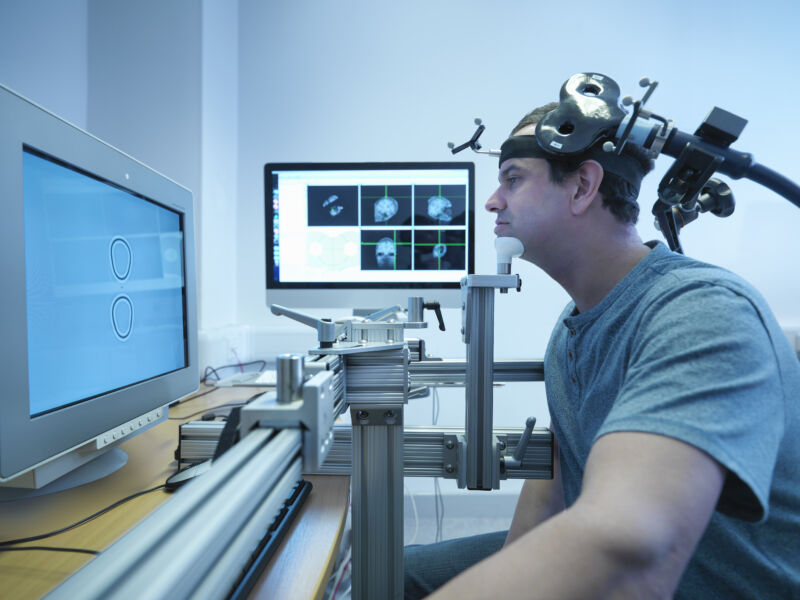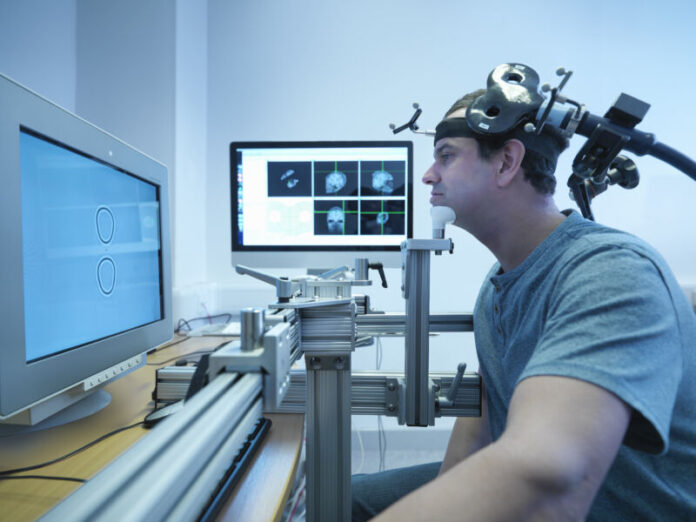
Enlarge / A decent placebo setup for transcranial magnetic stimulation is difficult to distinguish from actual treatment. (credit: Monty Rakusen)
Placebos have occupied an increasingly awkward spot in the medical landscape over the last few decades. Even as placebo-controlled trials have become accepted as the gold standard for evidence, we've grown to appreciate just how powerful the placebo effect can be. Confusing matters further, a new study has expanded on a previous finding: The placebo effect for antidepressant treatments appears to be growing stronger over time.
Earlier work had shown this was happening with placebo pills. The new study shows that it's happening with a treatment called transcranial magnetic stimulation. Fortunately, effective treatments appear to be getting better in parallel, so this hasn't obviously interfered with any results yet.
Stimulating magnets
Transcranial magnetic stimulation is fairly straightforward in principle. It's possible to use magnetic fields to induce currents in many materials. One of the materials where that works is the brain, where neural activity depends on the presence of voltage between a cell and its environment. So, by carefully shaping the magnetic field, it's possible to influence the activity in specific areas of the brain. Critically, this can be done with equipment placed outside the skull and, so, is quite non-invasive compared to many other interventions.
Read 12 remaining paragraphs | Comments
Ars Technica - All contentContinue reading/original-link]




